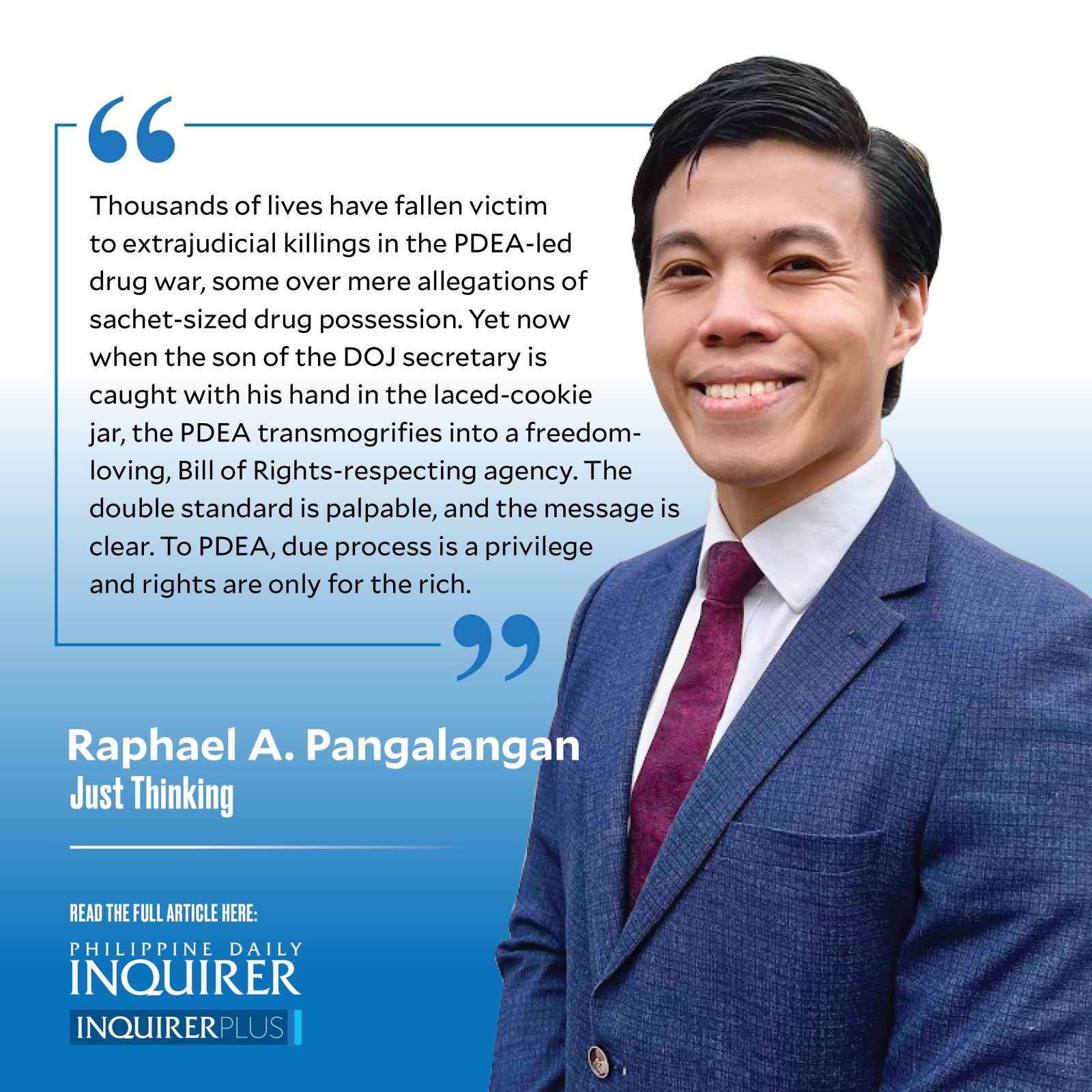Nine hundred thirty-seven. The grams of high-grade marijuana seized from Juanito Jose Diaz Remulla III on the morning of Oct. 11, 2022.
Forty-eight. The hours it took the Philippine Drug Enforcement Agency (PDEA) to publicly announce Juanito Remulla’s arrest.
Lives have been lost over so much less. Juanito Remulla has been given so much more.
First and foremost, I take the time to commiserate with Department of Justice (DOJ) Secretary Jesus Crispin “Boying” Remulla. I, like many others, recognize the value of family and the strain substance use disorder may have on family systems. And whether it comes to families in power or pauper, I genuinely believe that the answer to the social menace that is illegal narcotics lies not in retribution, but rehabilitation.
But the government has taken a much more vicious stance—a violence from which Juanito Remulla appears to have been spared! On Oct. 14, 2022, he was charged for illegal possession before the courts of law. Social media has thus since exploded, claiming that Juanito Remulla is receiving “special treatment.” As I thumb through the endless tweets, I can’t help but ask myself: What’s so “special” about due process of law?
After more than six years of the “war on drugs,” it is easy to forget that our fundamental rights are not the exception, but the rule. Even Juanito Remulla, drugs in hand, is simply an “accused” until he is judicially declared a “criminal.” That is the way Philippine legal procedure is structured. That is the way it should be. Even criminals caught in flagrante delicto are presumed innocent until proven otherwise beyond a reasonable doubt.
Though the due process Juanito Remulla enjoys may be nothing exceptional, it is without a doubt exemptional. Thousands of lives have fallen victim to extrajudicial killings in the PDEA-led drug war, some over mere allegations of sachet-sized drug possession. Yet now, when the son of the DOJ secretary is caught with his hand in the laced-cookie jar, the PDEA transmogrifies into a freedom-loving, Bill of Rights-respecting agency. The double standard is palpable, and the message is clear. To PDEA, due process is a privilege, and rights are only for the rich.
Secretary Remulla himself has gone on record openly supporting the war on drugs, likening drug traders to cockroaches that need to be exterminated. He now takes a much more modest disposition. No calls for extermination, and only promises of nonintervention in the case against his son. This is, however, doubtful. After all, Juanito Remulla was charged for mere illegal possession. Now I’m no mathematician here, but do we really think that P1.3 million worth of “kush” was for personal use?
Also, last I checked, the rule against nepotism is but par for the course. Yet now, Secretary Remulla would have us believe that his feigned neutrality is more than just fair but favor. As if impartiality was going beyond the call of duty, and not simply a public duty owed to his government office and the mandate it represents.
Secretary Remulla would like us to think that, through his silence, the proceedings against his son will neither be influenced nor impaired. Who is he kidding? He downplays, perhaps deliberately, that there is power even in silence. Secretary Remulla forgets that unlike the human rights advocates he tags as criminals, he need not even raise his voice for his hopes to be heard. We raise a placard, we get arrested. He need not even raise a finger to get his way.
It is not only Juanito Remulla who is in need of redemption. His father too, as Justice Secretary, must absolve himself of partiality and the appearance thereof in harmony with the demands of delicadeza and the propriety of professionalism, if not the dictates of doctrine itself. Interpreting Republic Act No. 6713 (Code of Conduct and Ethical Standards for Public Officials and Employees), the Supreme Court ruled in Samson v. Restrivera (GR No. 178454) that “a public official or employee should avoid any appearance of impropriety affecting the integrity of government services.”
The Constitution is clear: Public office is a public trust. Secretary Remulla owes that trust not to the President nor his patrons, but to the people. By continuing as Justice Secretary, Remulla does a disservice to us, to his office, and to the word “justice” that lies at the center of his mandate.
Secretary Remulla’s road to redemption begins with his resignation. Should he falter, President Marcos Jr. must honor his own mandate by relieving Secretary Remulla of the post he now discredits.
——————
thinkjustly@gmail.com


